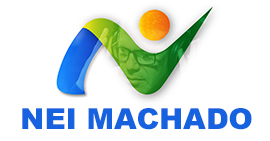Bem vindo ao nosso site!
The Rise of Student-Driven Encyclopedias: Transforming Discovering Landscapes
Finding The Games Together With The Best Probabilities In Vegas
14 de maio de 2025Big Bass Splash Slot Review : Tips and Strategies
14 de maio de 2025In the ever-evolving realm of education, where information streams In centimeters what is 12 times?=44 perfectly and accessibilitystudent learning support page to knowledge is just a click away, student-driven encyclopedias are becoming a dynamic tool in the knowing procedure.

These platforms not only provide pupils with a database of info but also urge them to contribute, modify, and curate content, fostering a collective and interactive knowing environment.
As instructional standards shift towards even more participatory and comprehensive models, the concept of student-driven encyclopedias personifies this transformation. These platforms empower students to become energetic participants in understanding development, connecting the space in between standard textbook discovering and modern digital resources.
The Principle of Student-Driven Encyclopedias
Student-driven encyclopedias are electronic systems where trainees jointly gather, confirm, and share details on a vast array of topics. Unlike standard encyclopedias, which are commonly created by specialists, these systems leverage the collaborative efforts of trainees to produce a thorough body of expertise.

At their core, student-driven encyclopedias are designed to grow vital thinking, research study abilities, and digital proficiency among trainees. By taking part in the process of material production, pupils discover to browse and evaluate information critically, abilities that are necessary in today’s information-rich culture.
In addition, these systems function as an area for students to discover their rate of interests and share their knowledge. This autonomous technique to expertise development makes sure that a diverse series of point of views and voices are stood for, improving the discovering experience for all participants.
- Students obtain hands-on experience in research study and material development.
- Encourages partnership and peer communication.
- Promotes a much deeper understanding of subject.
- Fosters inclusivity and variety in understanding representation.
Basically, student-driven encyclopedias transform students from passive receivers of details right into active contributors, instilling a feeling of possession and responsibility in their educational trip.
Advantages of Student-Driven Encyclopedias
Among the principal benefits of student-driven encyclopedias is the development of vital 21st-century skills. As pupils participate in the procedure of web content production, they develop their important thinking, electronic proficiency, and interaction skills, all of which are important in today’s interconnected globe.
Additionally, these systems encourage a collective knowing environment, where pupils can interact to validate information, debate various viewpoints, and co-edit posts. This peer-to-peer interaction not only boosts finding out end results however additionally fosters a feeling of area and mutual respect among students.
In addition, student-driven encyclopedias supply a platform for showcasing pupil work. As trainees contribute to the encyclopedia, they develop a portfolio of their research study and writing, which can be invaluable for additional academic and specialist pursuits.
Difficulties and Limitations

In spite of the many advantages, student-driven encyclopedias likewise deal with certain challenges. Making sure the precision and integrity of details is paramount, as these platforms depend on contributions from pupils that might not yet have expert-level knowledge.
- Maintaining material top quality and accuracy.
- Supplying sufficient supervision and advice.
- Guaranteeing equitable access and inclusivity.
To mitigate these obstacles, several student-driven encyclopedias apply a system of checks and equilibriums, where web content is examined by teachers or professionals before publication. This ensures that the details provided is both precise and trustworthy, upholding the honesty of the platform.
The Future of Student-Driven Encyclopedias
As innovation remains to advance and the landscape of education progresses, the capacity for student-driven encyclopedias is substantial. These platforms have the ability to not only enhance conventional educational resources however additionally redefine the way knowledge is obtained and shared.
In the future, we could see student-driven encyclopedias integrating advanced technologies such as artificial intelligence and artificial intelligence to boost material curation and personalization. In addition, they may expand past textual information to include multimedia web content, offering an extra immersive knowing experience.
Empowering the Next Generation
Student-driven encyclopedias hold the pledge of equipping the future generation of learners. By positioning pupils at the helm of knowledge production, these platforms motivate lifelong understanding, inquisitiveness, and intellectual freedom.
In conclusion, as instructional systems remain to introduce, student-driven encyclopedias stand as a testimony to the power of cooperation and the value of pupil company in the discovering procedure. By welcoming these platforms, we open the doors to a much more inclusive, interesting, and vibrant instructional experience for all.
